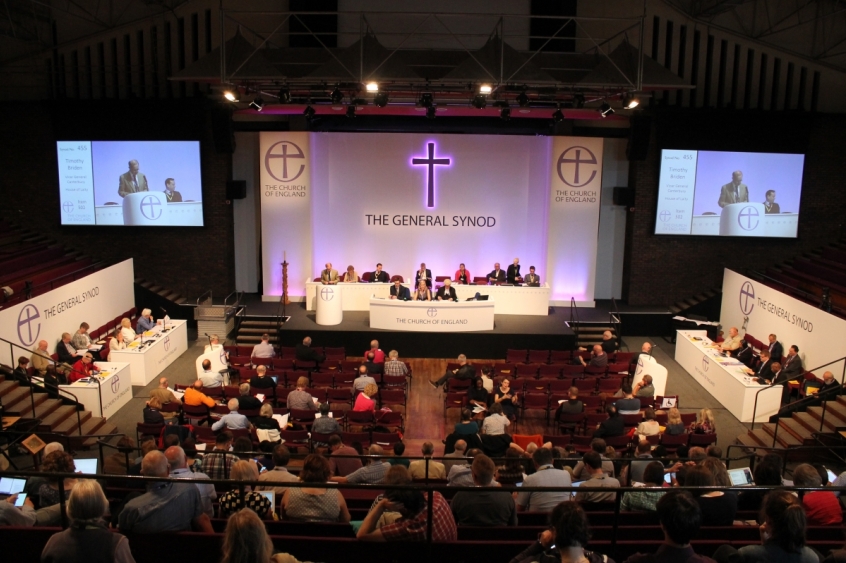
The Church of England's handling of "appalling" child sexual abuse was "marked by secrecy" and put the reputation of clergy before the interests of victims, a report has found.
The Independent Inquiry into Child Sex Abuse focused on former bishop Peter Ball, who was convicted in 2015 for offences against 18 teenagers and men spanning from the 1970s to 1990s, and the response of the Diocese of Chichester to child sexual abuse claims.
The report criticised former Archbishop of Canterbury George Carey's response but said overall that the Church of England's handling of abuse cases was "inadequate" and that some senior clergy had demonstrated "deep-seated arrogance".
Church leaders were also accused of perpetuating an "avoidance of reporting alleged crimes to the authorities and a failure to take professional advice".
"The question remains why the Church's responses to sexual abuse in Chichester, including the Peter Ball case, were so inadequate," the report reads.
"They had devastating consequences for the children and young people who were affected. There are some reasons already well known to this Inquiry from other investigations, principally concerning the prioritisation of reputation over the protection of children."
Regarding the actions of senior clergy, the report said that they "believed that they were right in their indulgent attitude towards some perpetrators, even when they had been convicted".
The report also calls actions by the Prince of Wales in support of Ball "misguided".
Professor Alexis Jay, Chair of the Inquiry, said: "For years, the Diocese of Chichester failed victims and survivors of child sexual abuse by prioritising its own reputation above their welfare.
"Not only were disclosures of abuse handled inadequately by the Church when they came to light, its response was marked by secrecy and a disregard for the seriousness of abuse allegations.
"Peter Ball is one example of how a senior member of the clergy was able to sexually abuse vulnerable teenagers and young men for decades. The public support he received is reflective of the Church's culture at the time; a support that was rarely extended to his victims."
Responding to the report, the Church of England said that the findings would be studied in detail and a full response released at a later date.
Statement in full from Peter Hancock, the Bishop of Bath and Wells and the Church's leading bishop for safeguarding:
"We thank the Inquiry for the report and note the findings and recommendations which we will now study in full.
The report states that the Church of England should have been a place which protected all children and supported victims and survivors and the Inquiry's summary recognises that it failed to do this.
It is absolutely right that the Church at all levels should learn lessons from the issues raised in this report.
"Whilst the report acknowledges the progress the Church has made in safeguarding, we recognise that our work must continue at pace in order that we can ensure that the Church is as safe as possible for all.
"We are committed to working to bring in specific changes that will help us better protect children and vulnerable adults from sexual and all other forms of abuse. If anyone is affected by today's report I would urge them to come forward. Details of how to do this can be found on the Church of England website.
"We are immensely grateful to survivors for their courage in coming forward to IICSA to share their experiences of how they were treated by the Church, knowing how difficult this would have been; their testimonies have made shocking and uncomfortable listening.
"Since the Archbishop of Canterbury asked for the Church of England to be investigated by IICSA as a matter of priority, we have sought to help the Inquiry in every way that we can and we will now fully consider the report."
The Diocese of Chichester's statement in full:
"We welcome the publication of the IICSA report on the diocese of Chichester. We take this report very seriously and will now take time to assimilate and digest its detailed findings.
"We are deeply ashamed of the obvious failures outlined in it and apologise unreservedly for the terrible damage that has been done to people's lives in so many ways.
"We are committed to doing all we can to ensure safety and respect for all vulnerable people, especially children, in our churches and church institutions and organisations.
"Although we are encouraged by the acknowledgement from IICSA of the progressive work the diocese has undertaking over the past few years to improve our safeguarding practices, we must never be complacent. We will continue to work on the development of a different culture in safeguarding, in our accountability, and in ensuring that we always respond appropriately and well to any allegation or report of abuse."













